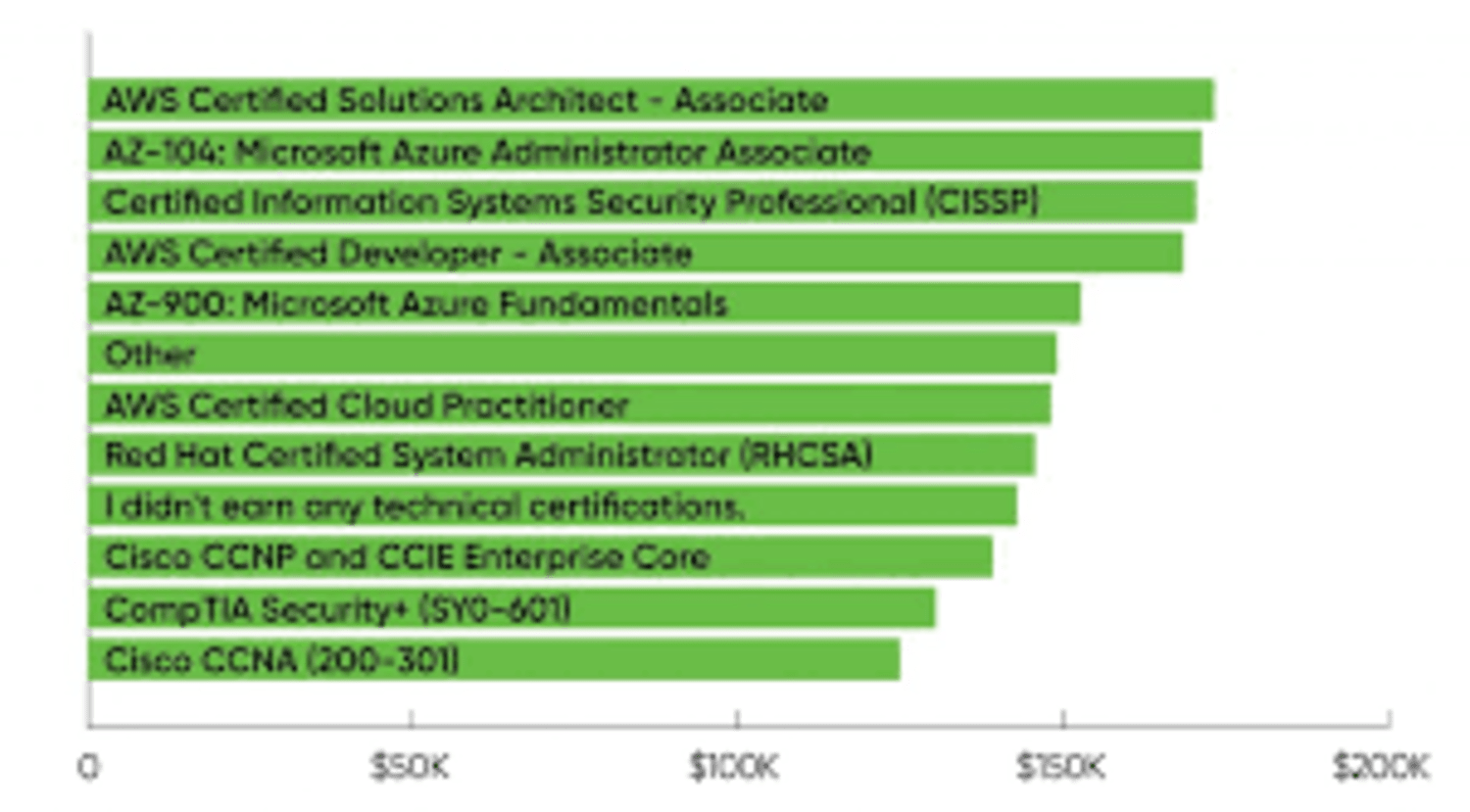If you’re interested in a high-paying career with plenty of room for advancement, a bachelor’s degree or master’s degree in IT could be the right choice. Learn more about the average information technology salary in a variety of regions with continually updated wage data.
Master’s Degree
A master’s degree in information technology equips students to develop and implement technological solutions for businesses and organizations. The program typically runs between 1-2 years and features a variety of study options and concentrations in hardware, software, design, administration, and analysis. It is worth noting that a master’s in IT is not the same as a master’s in information systems (IS). While both programs focus on IT, IS specialists are responsible for connecting technology to people while IT professionals develop the systems and tools that house and manage data.
A degree in IT offers career stability, lucrative salary prospects, and many advancement opportunities. However, obtaining one can be costly and time-consuming. According to CollegeBoard, a master’s in IT costs an average of $9,150 per year at a public university and $30,650 at a private one.
If you’re pursuing an IT degree, consider a graduate program that includes an experiential component. It will pack your resume with valuable work experience and help you stand out in the job market. Options for an experiential component include a co-op or internship, a thesis project, or information systems management research. In addition, you may want to consider a program that emphasizes leadership and management skills as well as IT knowledge. This can be particularly useful for those pursuing a managerial or executive role in IT, which is often the highest paying position in the industry.
Certifications
Computer and information technology jobs have one of the highest median annual salaries in the US at $97,430 per year according to the Bureau of Labor Statistics. This is more than double the average salary for all other occupations. It is also one of the few sectors where salaries rise annually.
IT certifications quickly demonstrate a worker’s mastery of specific technologies or practices and can increase their potential earning power. These credentials typically require a passing exam to earn and are offered by a number of companies, including Microsoft and CompTIA. These credentials are especially valuable for IT professionals working in help desk positions, as they show employers that the worker has the knowledge required to resolve a variety of basic issues.
For those interested in moving up in the field, earning a Certified Information Systems Security Professional (CISSP) credential can open the door to higher-level positions. These roles offer more challenging responsibilities and often pay better salaries. For example, a person who has earned the CISSP credential may find themselves eligible to become a project manager for IT projects.
A bachelor’s degree in information technology prepares graduates for a wide range of career paths and allows them to specialize in a particular area within the field. These specialties can include cybersecurity, software development and data analysis. Some of these fields have projected growth rates that are significantly higher than the national average. For this reason, a degree in IT can provide excellent value for students looking to secure a lucrative job with a competitive salary.
Work Experience
The salary of someone in the field of information technology or information systems can vary greatly depending on many factors, including his or her education and work experience. People with a bachelor’s degree or a master’s degree will likely earn a higher salary than those who only have a high school diploma. It’s also important to consider the type of job in which you would like to work, as some positions may require a particular type of degree or certification.
For example, a help desk technician will need a bachelor’s degree or higher while those who specialize in information security (InfoSec) will need a graduate degree or higher. However, some companies have stopped requiring four-year degrees for jobs in their IT departments, meaning that real-world experience and technical skills are more valuable than a degree.
One of the best ways to gain IT experience is to get an internship. This is a great way to learn the skills that will help you advance in your career and earn a higher salary. It’s also a great way to network with others in the industry and find future job opportunities.
You should always include your work experience on your resume. Be sure to list your start and end dates, company name and location to give context to your experience. It’s also important to include any relevant IT projects and achievements that you have worked on.
Leadership
Leadership skills are important for IT professionals because they are often expected to manage multiple projects at once. This requires efficiency, and leaders who are able to balance work with personal life may have more success in this industry. Leaders should also be able to communicate complex information in both simple terms and technical jargon to help non-technical colleagues understand how their technology solutions can make an impact on the entire company.
Leadership in IT can include a variety of functions, from developing new systems and programs to overseeing the organization’s IT infrastructure. Some IT leaders focus on specific software genres, such as computer programming or data management. Other IT leaders may specialize in helping the company develop its IT strategy and implementing that strategy. Still others are more focused on monetizing technology assets and finding ways to apply existing IT to new business processes or industries.
Regardless of their specialized area, all IT leaders need to be able to create and foster a culture of innovation within the company. They need to be able to identify new technology, assess its value and make reasonably accurate forecasts of when that technology can be productively applied to the firm’s operations. Similarly, they need to be able to find ways to translate technology concepts into tangible products that involve hardware, software, networks, procedures and data.

